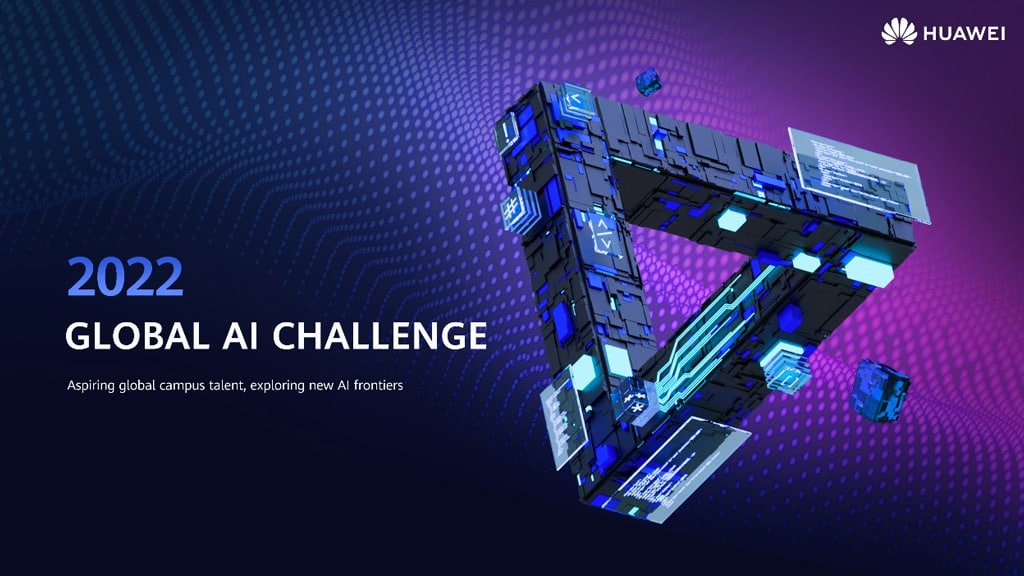News
Huawei Global AI Challenge has US$210,000 prize money

Huawei has officially the global AI challenge 2022 along with prize money of US$210,000 and it’s specially organized for the developers passionate about Artificial Intelligence and applications that are built around smart AI apps scenarios. If you want to learn more about this challenge, please check the full information below.
Check the full press release and details.
The 2022 Huawei GLOBAL AI CHALLENGE was officially launched and opened to online registration, with all full-time students who are formally enrolled at a higher-education institution now eligible to enroll in the competition and compete for US$210,000 in prize money. The competition is jointly held by the Jiangsu Association of Artificial Intelligence (JSAI), Huawei Consumer Cloud Service Department, and Huawei Nanjing Research Center, and aims to engage with aspiring young developers who share a passion for AI, as well as a commitment to applying AI to more scenarios for a fully connected, intelligent world.
The Huawei GLOBAL AI CHALLENGE is now in its fourth consecutive year since its start in 2019 and had attracted 2,500+ algorithm submissions, from nearly 8,000 teams in 45 countries and regions over its first three years. More than 150 contestants have been awarded. A number of outstanding contestants from the top universities and colleges in China were enrolled by Huawei. The competition marries theory with practice, bringing together young talent to nurture new AI technologies in both a theoretical and practical sense.
Wang Yue, President of Huawei Consumer Cloud Service Application Ecosystem BU, set forth the competition’s lofty ambitions, noting, “The development of AI has ushered in an era of ubiquitous intelligence. We aim to inspire global campus talent to explore new AI frontiers, and solve global problems.”
Advice from internationally renowned experts and Huawei professionals
The competition has been enriched by the contributions of acclaimed international AI experts, who provide contestants with advice and mentorships. This year’s slate of experts includes Zhi-Hua Zhou, Professor, and Head of the Department of Computer Science and Technology at Nanjing University and a foreign member of the Academy of Europe; Pascal Van Hentenryck, AAAI Fellow, A. Russell Chandler III Chair, and Professor at the H. Milton Stewart School; and Giuseppe De Giacomo, AAAI Fellow, ACM Fellow, and Full Professor at the Sapienza University of Rome.
Professor Zhou has served as a member of the advisory panel of the GLOBAL AI CHALLENGE for three consecutive years, and played an important role in the competition, noting at the launch event, “Many excellent contestants and solutions were highly praised by the judging panel in past three years. I wholeheartedly believe that this year’s contest will witness a new wave of impressive solutions, and more up-and-coming talent will have a chance to shine.”

15 AI experts from top universities and colleges in China from the distinguished judging panel and accomplished Huawei technical personnel will share their firsthand experiences. Their expertise will bring an element of industry authority to the competition, and promote industrial and academic achievements, as well as research.
Three contest proposals, address real-world challenges
Experts assessed potential contest proposals using the following five criteria: technical innovation, practical value, risk assessment, popularity, and difficulty, and ultimately settled on three proposals, encompassing practical application of AI in ad recommendations, mapping, and interactive media services. The proposals involve cutting-edge technologies, including machine learning, computer vision (CV), natural language processing (NLP), and decision intelligence, and encourage contestants to explore new solutions.
The first proposal is “knowledge-driven spoken dialogue”. Chatbots are often let down by their passiveness, which often leads to meaningless responses to user requests and limited information. That is why a dialogue system that is capable of interpreting messages and being informative is needed. The dialogue models contestants create are expected to be more robust when encountering word and syntax errors, providing users with responses that meet their expectations.
The second proposal is “intelligent quality inspection of lane rendering data”. When a navigation service is opened, the map background is generated through data rendering. However, issues with retrieving data may cause errors in lane-level images rendered using such data. To effectively and efficiently spot such data, a high-quality intelligent quality inspection model is needed. We believe that this proposal will rally talent from around the world in the CV domain.
The last proposal is “CTR prediction through cross-domain data from ads and news feeds”. Since the user behavior types that can be identified are limited if only data from the domain of the ad is used, contestants are expected to enhance ad click-through rate (CTR) prediction accuracy by leveraging ad logs, user profiles, and cross-domain data.
Prize money up for grabs
The contest was opened to registration on June 24 and will include preliminary (June 24 to August 24) and elite final (September 3 to mid-September) stages. Following an online competition in the preliminary stage, seven teams will be selected from each proposal to enter the elite final, where a total of 21 teams for the three proposals will compete for cash prizes via an online competition and presentation.
Huawei’s Shining Star Program has set aside a total of US$210,000 as prize money for the contest, which will be distributed to the top seven teams for each of the three proposals. The champion will be awarded US$35,000, the first runner-up US$15,000, and the second runner-up US$10,000. In addition, four teams will earn an honorary mention, which entitles them to US$2,500.
The GLOBAL AI CHALLENGE is a unique opportunity to explore the boundaries of data science, algorithms, and AI. We warmly invite all student developers who are daring enough to challenge themselves, to showcase their best work to the wider world.
Click here to register today






